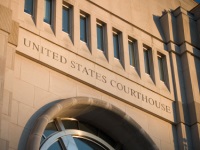Judge John L. Kane of the United States District Court for the District of Colorado is uninterested in oxymoronic gimmicks, that much is clear. In a fiery April 24, 2014 opinion, Judge Kane rejected settlements between the SEC and two individual defendants in an insider trading case. Judge Kane evoked—both in style and via explicit citation—Judge Jed Rakoff’s well-known rejection of the proposed settlement in SEC v. Citigroup Global Markets and similarly rejected the proposed settlements because they included numerous “provisions and recitations that [he would] not endorse.”
Judge Kane’s ire was focused on the SEC’s proposed settlement with Michael Van Gilder, the individual who allegedly traded based on inside information in advance of a high-stakes acquisition and tipped friends and family in an email titled “Xmas present.” The SEC’s proposed settlement with Van Gilder included a permanent injunction prohibiting future violations of Section 10(b) or Rule 10b-5, a $109,265 disgorgement payment (credited in part by a payment already made in a parallel criminal proceeding), and another $109,265 in civil penalties. The proposal included a number of standard provisions for SEC settlements, including a waiver of the entry of findings of fact and conclusions of law, a waiver of the right to appeal from the entry of final judgment, “a statement that Van Gilder neither admits nor denies the allegations of the Complaint,” and enjoining Van Gilder from future violations of existing statutory law. Judge Kane decisively rejected each of these in turn. READ MORE



